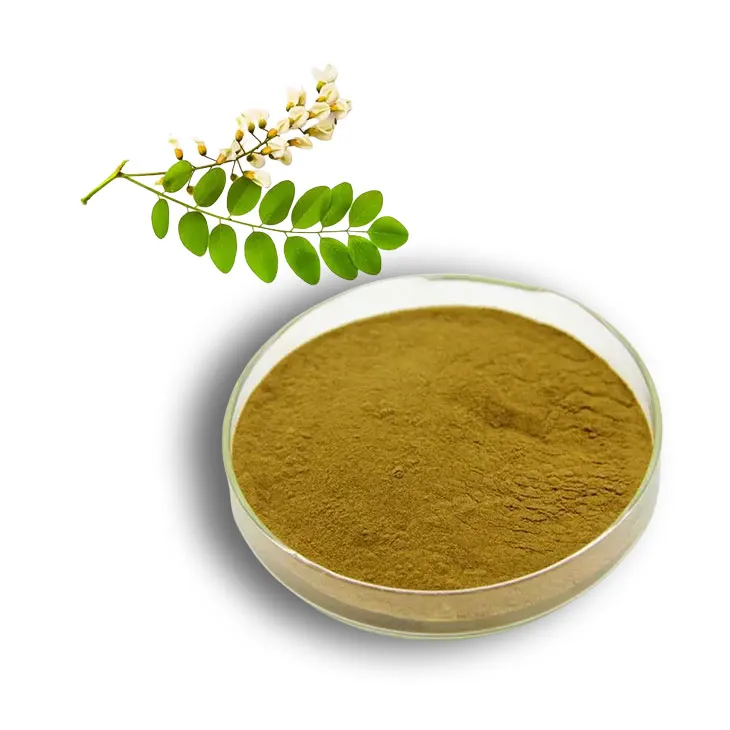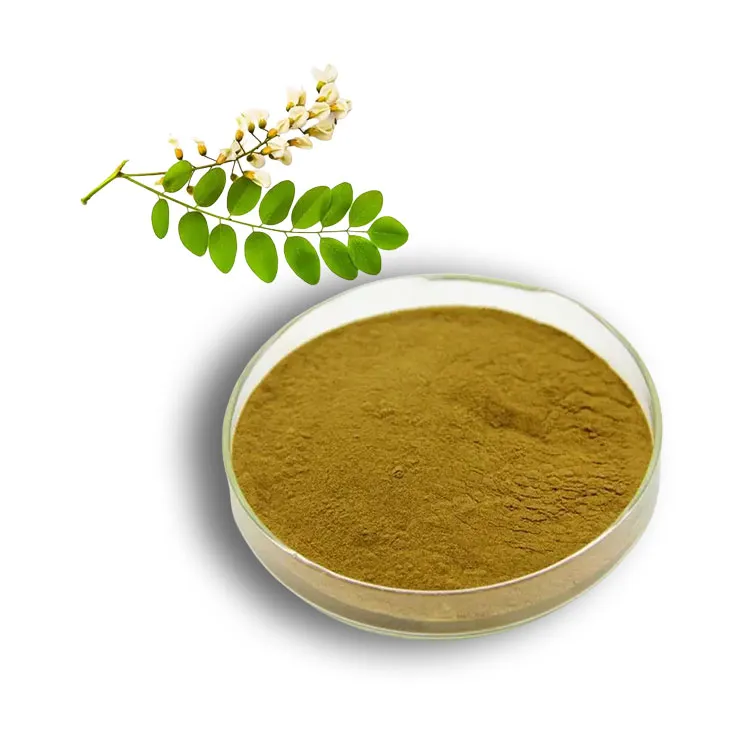- 0086-571-85302990
- sales@greenskybio.com
Use sophora japonica flower extract to prevent diseases and enhance immunity.
2024-11-14

1. Introduction
In recent years, there has been a growing interest in natural substances with potential health - promoting properties. Hawthorn Extract has emerged as one such substance that has captured the attention of the scientific community and the general public alike. This extract is derived from the hawthorn plant, which has a long history of use in traditional medicine. It is now being studied intensively for its ability to prevent diseases and enhance the immune system.

2. Components of Hawthorn Extract
Hawthorn Extract contains a rich variety of components, each of which may contribute to its health - promoting effects.
2.1 Flavonoids
Flavonoids are one of the major components in hawthorn extract. These compounds are known for their antioxidant properties. They are able to scavenge free radicals in the body, which are highly reactive molecules that can cause damage to cells and tissues. By neutralizing free radicals, flavonoids help to protect the body from oxidative stress, which is associated with a variety of chronic diseases such as heart disease, cancer, and neurodegenerative disorders.
2.2 Proanthocyanidins
Proanthocyanidins are another important group of compounds found in hawthorn extract. They are also strong antioxidants. In addition to their antioxidant activity, proanthocyanidins have been shown to have anti - inflammatory properties. Inflammation is a key factor in many diseases, and by reducing inflammation, proanthocyanidins may help to prevent or treat conditions such as arthritis, cardiovascular disease, and diabetes.
2.3 Organic Acids
Hawthorn extract contains various organic acids, such as citric acid, malic acid, and tartaric acid. These acids play important roles in maintaining the acid - base balance in the body. They also contribute to the digestion process by stimulating the secretion of digestive enzymes. Moreover, some organic acids have antibacterial and antiviral properties, which can help the body to fight against infections.

3. Antioxidant Properties of Hawthorn Extract
The antioxidant properties of hawthorn extract are of great significance in disease prevention.
3.1 Free Radical Scavenging
As mentioned earlier, hawthorn extract is rich in flavonoids and proanthocyanidins, which are effective free radical scavengers. Free radicals are produced continuously in the body as a result of normal metabolic processes, as well as exposure to environmental factors such as pollution, radiation, and cigarette smoke. If not properly neutralized, free radicals can react with cellular components such as DNA, proteins, and lipids, leading to oxidative damage. This oxidative damage can disrupt normal cellular functions and increase the risk of developing chronic diseases. By scavenging free radicals, hawthorn extract helps to reduce the oxidative stress in the body and protect cells from damage.
3.2 Prevention of Chronic Diseases
The antioxidant activity of hawthorn extract is closely related to the prevention of chronic diseases. For example, in the case of heart disease, oxidative stress can lead to the oxidation of low - density lipoprotein (LDL) cholesterol, which is a major risk factor for atherosclerosis. Hawthorn extract can prevent the oxidation of LDL cholesterol by scavenging free radicals, thereby reducing the risk of developing heart disease. Similarly, in cancer, oxidative damage to DNA can lead to mutations that may initiate the development of cancer cells. By protecting DNA from oxidative damage, hawthorn extract may play a role in cancer prevention.

4. Impact on the Immune System
Hawthorn extract also has a positive impact on the immune system.
4.1 Stimulation of Immune Cell Activity
Studies have shown that hawthorn extract can stimulate the activity of immune cells such as macrophages and lymphocytes. Macrophages are phagocytic cells that play a crucial role in the innate immune response. They can engulf and destroy foreign invaders such as bacteria and viruses. Lymphocytes, on the other hand, are involved in the adaptive immune response. They can recognize specific antigens and produce antibodies to neutralize them. By stimulating the activity of these immune cells, hawthorn extract can enhance the body's ability to fight against infections.
4.2 Regulation of the Immune Response
In addition to stimulating immune cell activity, hawthorn extract can also regulate the immune response. The immune system needs to maintain a balance between activation and suppression to function properly. An overactive immune response can lead to autoimmune diseases, while an underactive immune response can make the body more susceptible to infections. Hawthorn extract can help to regulate the immune response by modulating the production of cytokines, which are signaling molecules that play important roles in immune regulation.
5. Scientific Research on Hawthorn Extract
There has been a significant amount of scientific research on hawthorn extract in recent years.
5.1 In - vitro Studies
In - vitro studies have been conducted to investigate the effects of hawthorn extract on cells. For example, studies have shown that hawthorn extract can protect endothelial cells from oxidative damage. Endothelial cells line the inner surface of blood vessels and play an important role in maintaining vascular health. Oxidative damage to endothelial cells can lead to endothelial dysfunction, which is an early event in the development of cardiovascular disease. By protecting endothelial cells from oxidative damage, hawthorn extract may have a beneficial effect on cardiovascular health.
5.2 In - vivo Studies
In - vivo studies have also been carried out to evaluate the effects of hawthorn extract in animals and humans. In animal studies, hawthorn extract has been shown to reduce blood pressure, improve lipid metabolism, and enhance the immune function. In human studies, hawthorn extract has been used to treat various conditions such as heart failure, arrhythmia, and high blood pressure. These studies have provided evidence for the potential health - promoting effects of hawthorn extract.
6. Practical Applications of Hawthorn Extract
Hawthorn extract has a wide range of practical applications in the field of health.
6.1 Dietary Supplements
One of the most common applications of hawthorn extract is as a dietary supplement. Hawthorn extract supplements are available in various forms such as capsules, tablets, and tinctures. These supplements are often used to support cardiovascular health, improve digestion, and enhance the immune system. However, it is important to note that dietary supplements should be used under the guidance of a healthcare professional, as they may interact with medications or have potential side effects.
6.2 Functional Foods
Hawthorn extract can also be incorporated into functional foods. Functional foods are foods that have been modified or enhanced to provide additional health benefits beyond basic nutrition. For example, hawthorn extract can be added to beverages such as tea or juice, or to foods such as yogurt or cereal. By consuming these functional foods, consumers can obtain the health - promoting benefits of hawthorn extract in a convenient and enjoyable way.
6.3 Traditional Medicine
In traditional medicine, hawthorn has been used for centuries to treat various ailments. Hawthorn extract is still used in some traditional medicine systems today. For example, in Chinese traditional medicine, hawthorn is used to promote digestion, invigorate blood circulation, and relieve chest pain. However, it is important to note that traditional medicine practices should be used in conjunction with modern medical knowledge and under the supervision of a qualified healthcare provider.
7. Conclusion
In conclusion, hawthorn extract has shown great potential in preventing diseases and enhancing immunity. Its rich composition of flavonoids, proanthocyanidins, and organic acids, along with its antioxidant and immune - modulating properties, make it a valuable natural substance for health promotion. Scientific research has provided evidence for its beneficial effects on various aspects of health, including cardiovascular health, chronic disease prevention, and immune function. Practical applications of hawthorn extract in dietary supplements, functional foods, and traditional medicine further demonstrate its versatility and potential. However, more research is still needed to fully understand the mechanisms of action of hawthorn extract and to optimize its use for maximum health benefits.
FAQ:
What are the main components in hawthorn extract that are beneficial to health?
Hawthorn extract contains various components such as flavonoids, organic acids (like citric acid), and proanthocyanidins. Flavonoids are known for their antioxidant properties, which can help prevent cell damage. Organic acids play a role in digestion and metabolism regulation. Proanthocyanidins contribute to the overall antioxidant capacity and may also have anti - inflammatory effects.
How do the antioxidant properties of hawthorn extract reduce the risk of chronic diseases?
The antioxidant properties of hawthorn extract enable it to combat free radicals in the body. Free radicals are unstable molecules that can cause oxidative stress, which is linked to various chronic diseases such as heart disease, cancer, and diabetes. By neutralizing these free radicals, hawthorn extract helps protect cells from damage, reducing the likelihood of the development of chronic diseases.
Can you explain how hawthorn extract stimulates immune cell activity?
Hawthorn extract may contain certain bioactive compounds that can interact with immune cells. For example, it could enhance the function of macrophages, which are important immune cells responsible for engulfing and destroying foreign substances. It might also influence the production and activity of cytokines, which are signaling molecules in the immune system, thus stimulating the overall immune cell activity.
Are there any practical applications of hawthorn extract in daily life for disease prevention?
Yes, there are. Hawthorn extract can be consumed in the form of dietary supplements. It can also be found in some herbal teas or functional foods. For example, drinking hawthorn - flavored tea regularly may potentially help in maintaining good health and preventing certain diseases. However, it should be noted that it is not a substitute for a balanced diet and a healthy lifestyle.
How much hawthorn extract should be consumed for effective disease prevention and immunity enhancement?
The appropriate dosage of hawthorn extract for disease prevention and immunity enhancement has not been precisely defined yet. It may vary depending on factors such as an individual's age, health condition, and the form of the extract (e.g., pure extract, extract in a supplement). It is advisable to consult a healthcare professional before starting any supplementation regimen.
Related literature
- The Health - Promoting Effects of Hawthorn Extract: A Comprehensive Review"
- "Hawthorn Extract and Immune Function: Recent Research Findings"
- "Antioxidant Properties of Hawthorn Extract in Chronic Disease Prevention"
- ▶ Hesperidin
- ▶ citrus bioflavonoids
- ▶ plant extract
- ▶ lycopene
- ▶ Diosmin
- ▶ Grape seed extract
- ▶ Sea buckthorn Juice Powder
- ▶ Beetroot powder
- ▶ Hops Extract
- ▶ Artichoke Extract
- ▶ Reishi mushroom extract
- ▶ Astaxanthin
- ▶ Green Tea Extract
- ▶ Curcumin Extract
- ▶ Horse Chestnut Extract
- ▶ Other Problems
- ▶ Boswellia Serrata Extract
- ▶ Resveratrol Extract
- ▶ Marigold Extract
- ▶ Grape Leaf Extract
- ▶ blog3
- ▶ blog4
- ▶ blog5
-
Organic Tongkat Ali extract powder factory.
2024-11-14
-
How to make powder with ashwagandha extract.
2024-11-14
-
Rosehip extract manufacturers from China.
2024-11-14
-
The best cat's claw extract in nature.
2024-11-14
-
Chinese Dandelion Leaf Extract Suppliers.
2024-11-14
-
Cranberry Extract
2024-11-14
-
Soy Extract
2024-11-14
-
Giant Knotweed Extract
2024-11-14
-
Resveratrol extract
2024-11-14
-
Lemon Juice Powder
2024-11-14
-
Peppermint Extract Powder
2024-11-14
-
Aguaje Extract
2024-11-14
-
Bayberry Extract
2024-11-14
-
Medicinal Marshmallow Extract
2024-11-14
-
Quercetin
2024-11-14





















